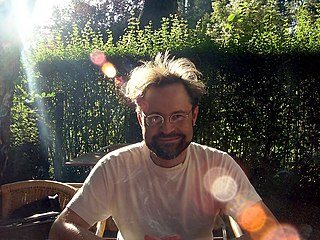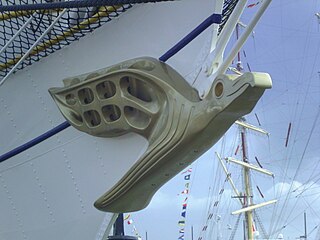Related Research Articles

Publishing is the business of making information available to the public, particularly the sale or dissemination of literature, music, or information using both digital and non-digital media.. In some cases, authors may be their own publishers, meaning originators and developers of content also provide media to deliver and display their content. "Publisher" can refer both to an individual who leads a publishing company or an imprint and to an individual who leads a magazine.

The Chicago Manual of Style is a style guide for American English published since 1906 by the University of Chicago Press. Its seventeen editions have prescribed writing and citation styles widely used in publishing. It is "one of the most widely used and respected style guides in the United States". The guide specifically focuses on American English and deals with aspects of editorial practice, including grammar and usage, as well as document preparation and formatting. It is available in print as a hardcover book, and by subscription as a searchable website as The Chicago Manual of Style Online. The online version provides some free resources, primarily aimed at teachers, students, and libraries.

The Ruhr, also referred to as Ruhr district, Ruhr region, Ruhr area or Ruhr valley, is a polycentric urban area in North Rhine-Westphalia, Germany. With a population density of 2,800/km2 and a population of over 5 million (2017), it is the largest urban area in Germany and the third-largest in the European Union. It consists of several large cities bordered by the rivers Ruhr to the south, Rhine to the west, and Lippe to the north. In the southwest it borders the Bergisches Land. It is considered part of the larger Rhine-Ruhr metropolitan region of more than 10 million people, which is among the largest in Europe.

Bochum is the sixth largest city of the most populous German federal state of North Rhine-Westphalia after Cologne, Düsseldorf, Dortmund, Essen and Duisburg, and its 364,920 (2016) inhabitants make it the 16th largest city of Germany. On the Ruhr Heights (Ruhrhöhen) hill chain, between the rivers Ruhr to the south and Emscher to the north, it is the second largest city of Westphalia after Dortmund, and the fourth largest city of the Ruhr after Dortmund, Essen and Duisburg. It lies at the centre of the Ruhr, Germany's largest urban area, in the Rhine-Ruhr Metropolitan Region, and belongs to the region of Arnsberg. It is surrounded by the cities of Herne, Castrop-Rauxel, Dortmund, Witten, Hattingen, Essen and Gelsenkirchen. Bochum is the sixth largest and one of the southernmost cities in the Low German dialect area. There are nine institutions of higher education in the city, most notably the Ruhr University Bochum, one of the ten largest universities in Germany, and the Bochum University of Applied Sciences.

Gelsenkirchen is the 11th largest city of Germany's most populous federal state of North Rhine-Westphalia and its 262,528 (2016) inhabitants make it the 25th largest city of Germany. On the Emscher River, it lies at the centre of the Ruhr, the largest urban area of Germany, of which it is the fifth largest city after Dortmund, Essen, Duisburg and Bochum. The Ruhr is located in the Rhine-Ruhr Metropolitan Region, one of Europe's largest urban areas. Gelsenkirchen is the fifth largest city of Westphalia after Dortmund, Bochum, Bielefeld and Münster, and it is one of the southernmost cities in the Low German dialect area. The city is home to the famous football club Schalke 04, which is named after Gelsenkirchen-Schalke. The club's stadium Veltins-Arena, however, is located in Gelsenkirchen-Erle.
Electronic publishing includes the digital publication of e-books, digital magazines, and the development of digital libraries and catalogues. It also includes an editorial aspect, that consists of editing books, journals or magazines that are mostly destined to be read on a screen.

The Ruhr-University Bochum, located on the southern hills of central Ruhr area in Bochum, was founded in 1962 as the first new public university in Germany after World War II. Instruction began in 1965.
A vanity press, vanity publisher, or subsidy publisher is a publishing house in which authors pay to have their books published. In contrast, mainstream publishers, whether major companies or small presses, derive their profit from sales of the book to the general public. Publishers must therefore try to publish works that will sell sufficient copies to at least cover their costs, and typically reject a majority of the books submitted to them.
Stanford University Press (SUP) is the publishing house of Stanford University. It is one of the oldest academic presses in the United States and the first university press to be established on the West Coast. It was among the presses officially admitted to the Association of American University Presses at the organization's founding, in 1937, and is one of twenty-two current member presses from that original group. The press publishes 130 books per year across the humanities, social sciences, and business, and has more than 3,500 titles in print.
Springer Science+Business Media or Springer, part of Springer Nature since 2015, is a global publishing company that publishes books, e-books and peer-reviewed journals in science, humanities, technical and medical (STM) publishing. Springer also hosts a number of scientific databases, including SpringerLink, and SpringerImages. Book publications include major reference works, textbooks, monographs and book series; more than 168,000 titles are available as e-books in 24 subject collections. Springer has major offices in Berlin, Heidelberg, Dordrecht, and New York City.

Andreas Floer was a German mathematician who made seminal contributions to the areas of geometry, topology, and mathematical physics, in particular the invention of Floer homology.
Wilhelm Walcher was a German experimental physicist. During World War II, he worked on the German nuclear energy project, also known as the Uranium Club; he worked on mass spectrometers for isotope separation. After the war, he was director of the Institute of Physics at the University of Marburg. He was a president of the German Physical Society and a vice president of the German Research Foundation. He helped found the Society for Heavy Ion Research and the German Electron Synchrotron DESY. He was also one of the 18 signatories of the Göttingen Manifest.

Jamiri is one of the most recognized comics artists in Germany.

The University of New Mexico Press, founded in 1929, is a university press that is part of the University of New Mexico. Its administrative offices are in the Office of Research, on the campus of UNM in Albuquerque.
Werner Abelshauser is a German economic historian.

Dr. Heinrich Andreas Schroeteler German sculptor. During World War II, he commanded U-boat and received the Knight's Cross of the Iron Cross ; during the post-war years, he pursued a career in art history and archeology.
Jens Peter Blauert is a German scientist specializing in psycho-acoustics and an emeritus professor at the Ruhr-Universität Bochum, where he founded the Institute of Communication Acoustics. His major scientific fields of interest are spatial hearing, binaural technology, aural architecture, perceptual quality, speech technology, virtual environments and tele-presence.

The following outline is provided as an overview of and topical guide to books:
The Institute for International Law of Peace and Armed Conflict (IFHV) at Ruhr University Bochum (Germany) is one of the leading research institutes on humanitarian law and humanitarian studies in Europe.
Ning Xiang is a Chinese-American acoustical physicist, former Research Engineer of HEAD acoustics, and former Research Scientist of Fraunhofer Institut fuer Bauphysik, and of National Center for Physical Acoustics (NCPA). He is now Director and full professor of the Graduate Program in Architectural Acoustics at Rensselaer Polytechnic Institute.
References
- ↑ "General information, university press website". 1 November 2014.
- ↑ "founding information, website of the press". 1 November 2014.
- ↑ "Member list of the Association of University Presses". 1 November 2014.
- ↑ "Verlags-Programm" (PDF). 1 November 2014.
- ↑ "Verlags-Auftrag laut Webseite". 1 November 2014.
- ↑ "Information from the University Press website". 1 November 2014.
- ↑ "Information from the menu item "about us" and from the main website of the university press". 1 November 2014.